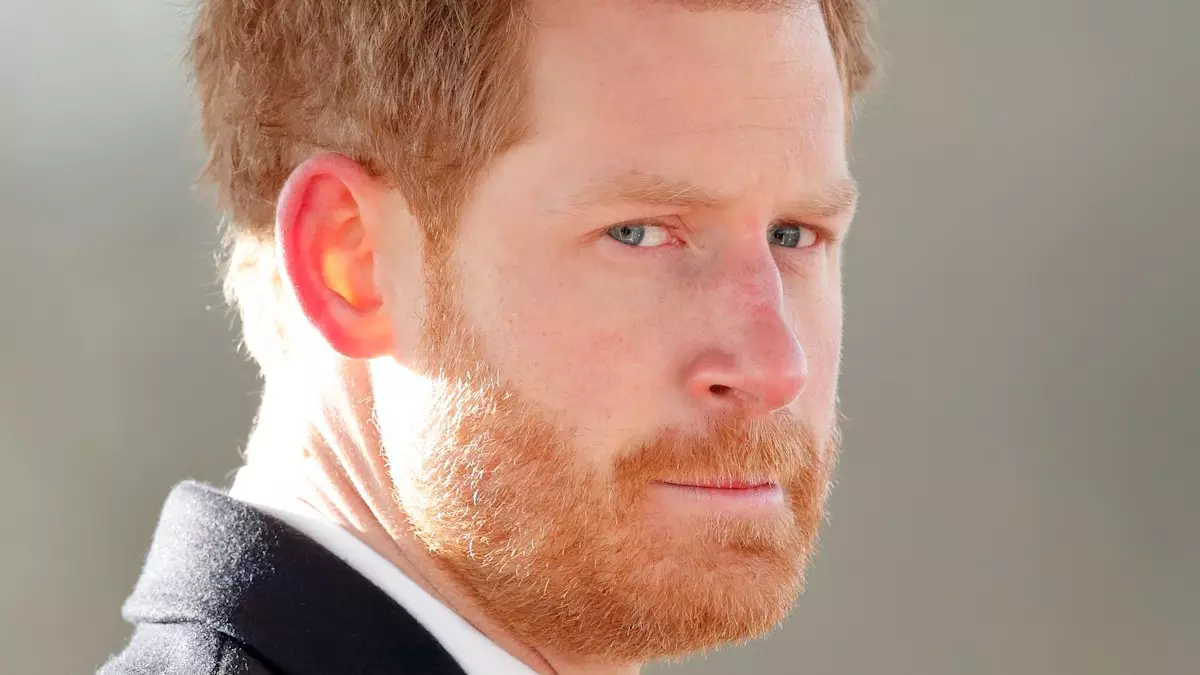Prince Harry, the Duke of Sussex, is set to make a notable return to the UK next month, stepping into a courtroom arena that concerns not just his reputation but also the ethics of press practices. His upcoming trial against the publishers of The Sun is not merely a legal confrontation; it symbolizes a deeper struggle regarding privacy rights and accountability in the media. Alongside former Labour deputy leader Lord Tom Watson, he is challenging News Group Newspapers (NGN), shedding light on longstanding issues of press intrusion that have affected many public figures in the UK. This high-profile case has generated widespread interest and raises critical questions about media ethics, privacy, and the implications of modern celebrity culture.
At the heart of Prince Harry’s legal struggle lie serious accusations against NGN for unlawful information-gathering tactics, including phone hacking and intrusive surveillance methods. Harry, who is no stranger to the invasive tactics of the British press, claims that he has been targeted through unethical journalistic practices, often crossing the line between public interest and personal privacy. This lawsuit represents not only his fight for justice but also a quest for accountability in a media landscape rife with unethical actions. By exposing these alleged practices, Harry aims to elevate the discourse around press responsibility, potentially catalyzing change for others who have suffered from similar invasions of privacy.
The significance of this trial transcends Harry’s personal grievances; it taps into a broader narrative concerning the responsibilities of media outlets and the lengths they may go to for sensational stories. In an age where digital surveillance is increasingly prevalent and access to private information is easier than ever, the revelations stemming from Harry’s experience may resonate far beyond the royal family, impacting countless individuals whose lives have been shaped by intrusive media practices.
The courtroom proceedings are expected to last approximately seven weeks, creating an atmosphere of tension that promises to engage not just the parties involved but also the public. The high-stakes nature of this case means that emotions will run high, especially during the cross-examination of Prince Harry by counsel for NGN. The intensity of such encounters is magnified by the societal implications tied to the outcome, as a ruling favorable to Harry could set a precedent for future media accountability.
Moreover, the Duke’s previous experience in a courtroom setting during his suit against Mirror Group Newspapers has equipped him for this battle. Having already taken a stand on behalf of his rights, he seems determined to see this case through, demonstrating resilience and a commitment to speak out against perceived wrongdoing. This trial, thus, is more than a legal proceeding; it is a defining moment for Harry as he seeks to reclaim some semblance of control over his life, media narrative, and, importantly, the safety of his family.
While Prince Harry prepares for this trial, the absence of his wife, Meghan Markle, adds another layer to the situation. Speculations suggest that Meghan’s ongoing reluctance to return to the UK is closely tied to concerns over their children’s safety and the couple’s previous experiences with unwanted media attention. The couple’s decision to relocate to California after stepping back from royal duties was heavily influenced by a desire for privacy and security—elements that their royal status had made increasingly difficult to maintain.
Harry’s recent legal battle with the Home Office regarding security during his visits to the UK reflects the complexities of balancing royal responsibilities with the need for personal safety. The ongoing adjustments in the Duke’s level of security reveal the intricacies involved in royal life, particularly when it intertwines with media scrutiny and public interest.
Harry’s declaration that he feels responsible for holding the press accountable for its actions brings to light a profound sense of duty that contrasts with the historically fraught relationship between the monarchy and the media. His assertion that “one of the main reasons for seeing this through is accountability” underscores a drive not just for personal vindication but for a collective change in how public figures are treated by the press.
This brings us back to the overarching themes of media ethics—where is the line drawn between public interest and personal privacy? Harry’s battle may pave the way for significant conversations surrounding this delicate balance, potentially influencing how the media operates in the future. It illustrates a growing tension between the right to privacy and the desire for transparency, particularly when the public is captivated by the lives of those in the limelight.
As Prince Harry gears up for this pivotal moment, the implications of his trial extend far beyond his personal story. His resilience in facing a media giant and the potential ramifications of his fight can impact public perceptions of privacy rights in an era of relentless scrutiny. As he navigates this challenging terrain, it becomes increasingly clear that the outcome of this trial may not simply resolve Harry’s grievances but could also serve as a touchstone for broader societal issues surrounding media ethics, accountability, and the rights of individuals in the public eye. The royal family, the press, and the public watch and wait, all recognizing that this trial could very well shape the narrative of media relations for years to come.

